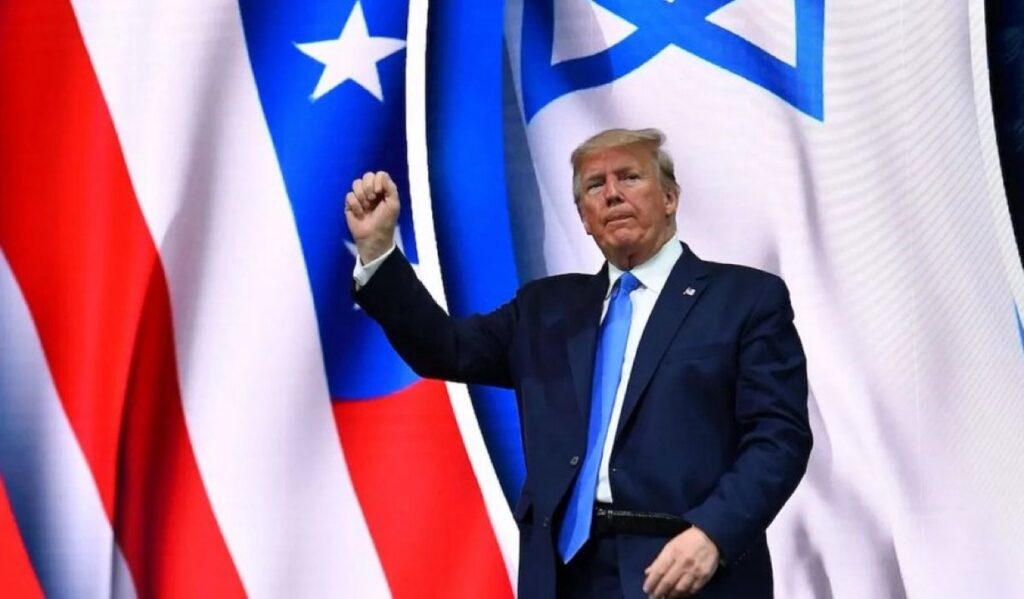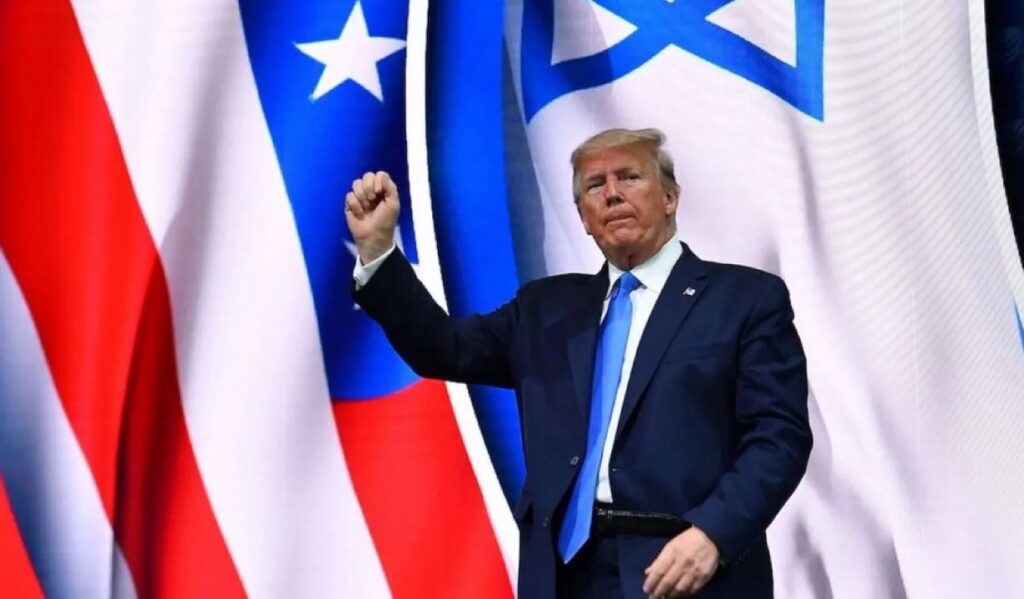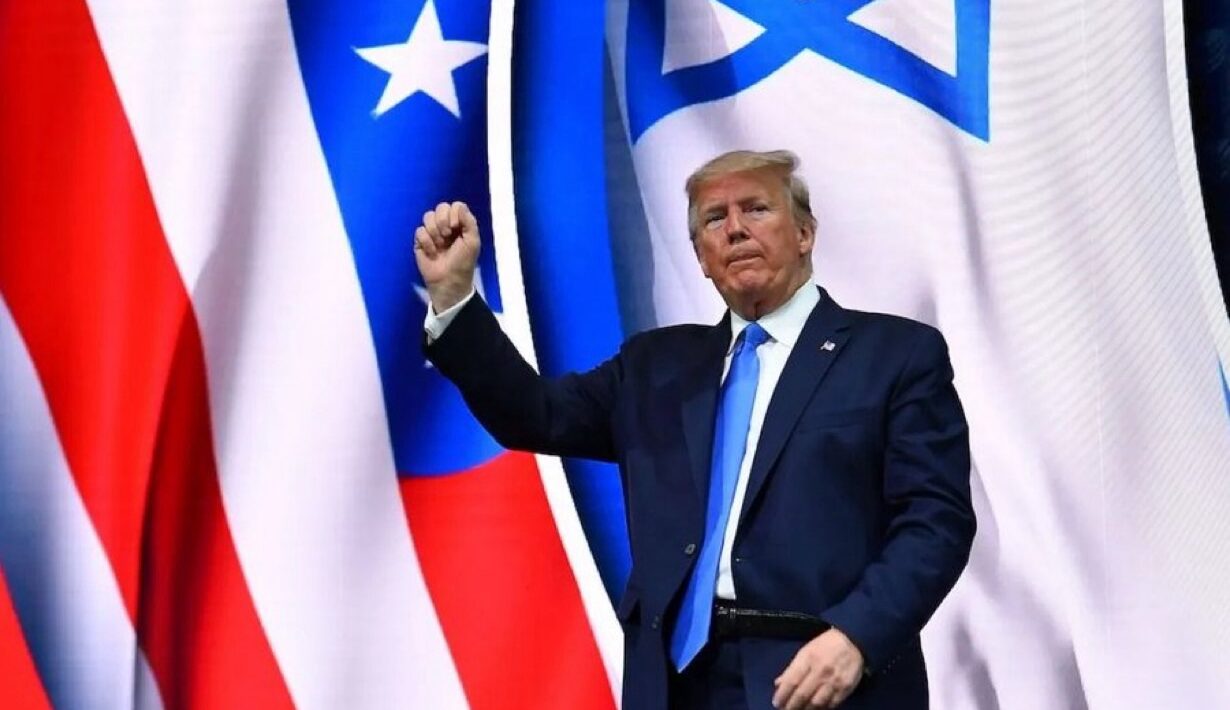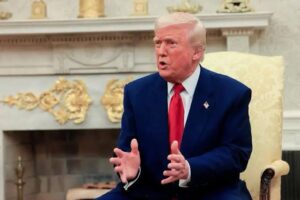Former President Donald Trump has reportedly assured Israeli leaders that he would eliminate all current restrictions on arms transfers to Israel, put in place by the Biden administration, if he were re-elected to office. The statement, initially reported by Israel’s N12 news outlet, has sparked significant discussion, both in the United States and abroad, regarding the potential impact of such a policy shift on U.S.-Israel relations and Middle East stability.

The Biden administration has implemented several arms transfer restrictions on Israel since taking office, primarily to maintain oversight on the use of advanced U.S. weaponry in the region. These measures aim to ensure that American-supplied arms are used in accordance with U.S. interests, international law, and human rights standards. Critics, however, have argued that these restrictions limit Israel’s ability to defend itself amid increasing regional tensions, especially with Iran and other adversarial groups.
Trump’s Commitment to Israel
Trump’s relationship with Israel has been a cornerstone of his foreign policy platform. During his presidency, he made several historic moves in support of Israel, including the relocation of the U.S. embassy from Tel Aviv to Jerusalem and the recognition of Israel’s sovereignty over the Golan Heights. His administration also brokered the Abraham Accords, facilitating normalization agreements between Israel and several Arab states, which were hailed as a major achievement in Middle East diplomacy.
If re-elected, Trump has promised to “immediately remove all restrictions on the transfer of arms to Israel” imposed by the Biden administration. According to N12, Trump’s pledge is part of a broader plan to reaffirm and enhance U.S. support for Israel, ensuring the country has the resources it needs to defend against growing threats.
The Impact of Lifting Restrictions on Arms Transfers
A removal of Biden-era restrictions could significantly bolster Israel’s military capabilities. Advanced U.S.-made weapons, such as precision-guided munitions, missile defense systems, and cutting-edge aircraft, are essential components of Israel’s defense strategy. Trump’s assurance to lift restrictions would streamline Israel’s access to these technologies, allowing for more rapid deployments and fewer bureaucratic hurdles.
Critics, however, argue that the Biden administration’s restrictions serve an essential role in ensuring accountability and human rights protections. With the situation in Gaza and the West Bank becoming increasingly volatile, opponents warn that unrestricted access to American arms could exacerbate conflicts in these areas, risking civilian casualties and sparking further unrest in the region.
U.S.-Israel Relations and Regional Implications
Trump’s promise to Israel highlights the ongoing divide between the foreign policy strategies of Republican and Democratic administrations in the U.S. While both parties generally support Israel, their approaches differ on issues like arms sales, human rights, and diplomatic balance in the region.
Trump’s stance aligns with his belief in a “peace through strength” approach, arguing that a robust Israeli military presence acts as a deterrent to regional instability. Many in the U.S. pro-Israel community see Trump’s commitment as essential for Israel’s security, especially in countering threats from Iran, which has continued to expand its influence in Syria, Lebanon, and Yemen.
At the same time, a blanket lifting of restrictions could have complex implications for U.S. relationships with other Middle Eastern countries, many of whom support Palestinian sovereignty and may view an unrestricted arms policy as a destabilizing factor. Arab leaders, while increasingly willing to engage diplomatically with Israel, could see a surge in Israeli military capacity as a threat to regional peace efforts.
Looking Forward
As Trump seeks re-election, his commitment to reversing Biden-era arms restrictions on Israel is likely to become a central point of his foreign policy agenda. The issue will resonate with his base of supporters, particularly those who value strong U.S.-Israel ties. Additionally, the pledge is likely to attract support within some sectors of the Jewish-American community and others who view Israel as a critical ally.

For Israel, Trump’s promises signal a potential return to the preferential arms transfer policies that characterized his previous administration. However, the broader implications for the Middle East remain complex, as unrestricted arms access may amplify tensions in a region already fraught with political and security challenges.
Whether or not Trump’s assurances translate into policy will depend on the outcome of the upcoming election, as well as on potential bipartisan discussions over the U.S.’s long-term strategic goals in the region. As of now, Trump’s statement reflects a clear departure from the current administration’s cautious stance on arms transfers to Israel, setting the stage for a potential shift in U.S. policy toward its closest Middle Eastern ally.



































































































